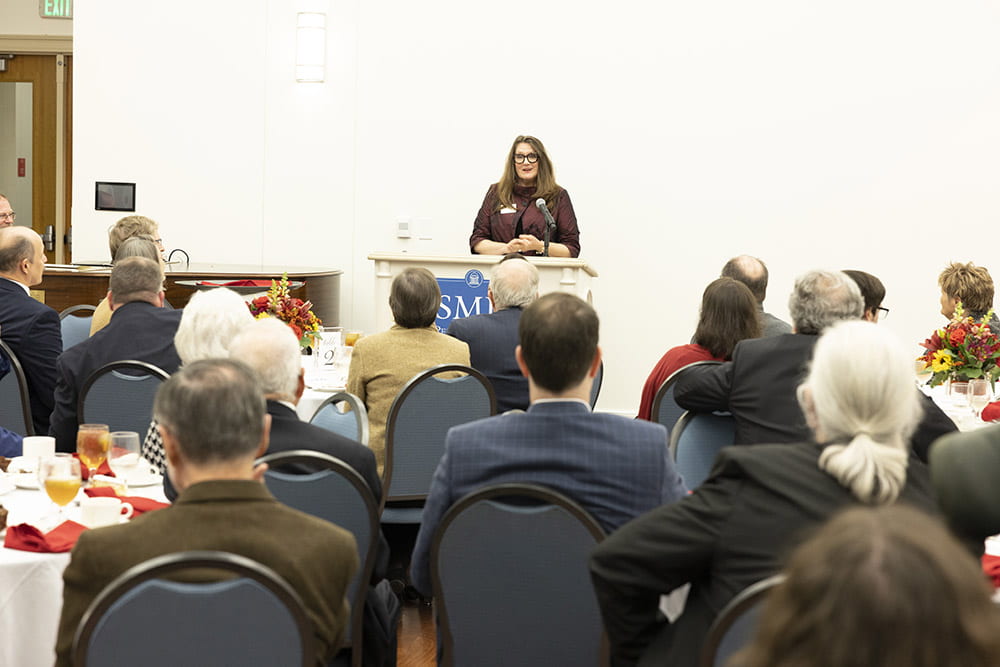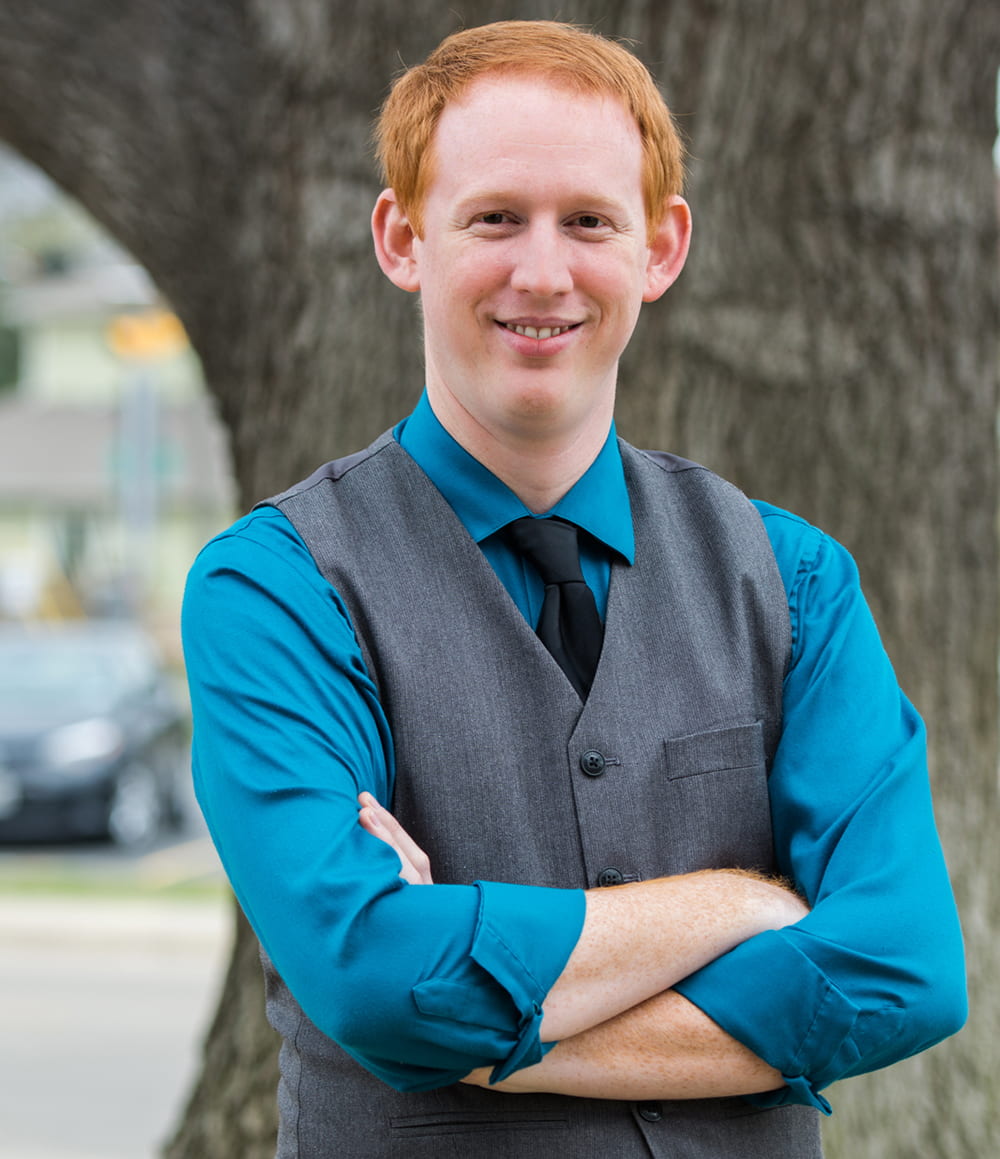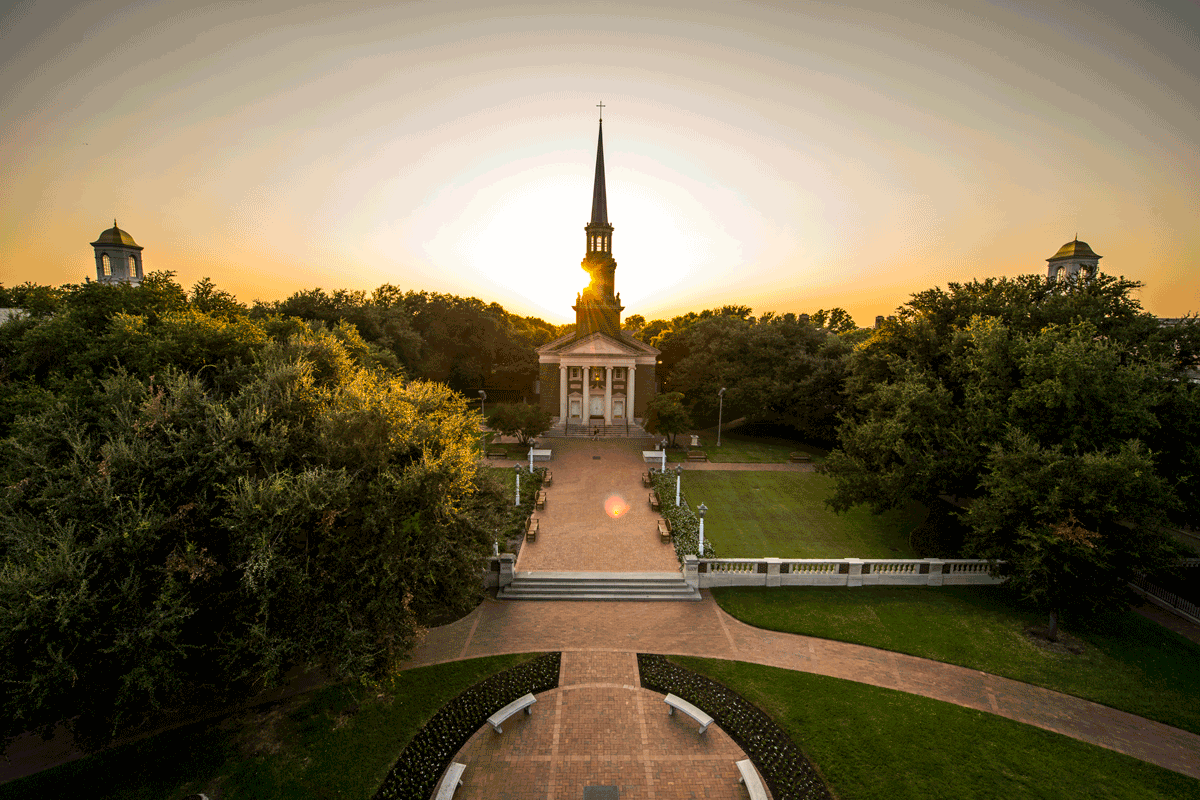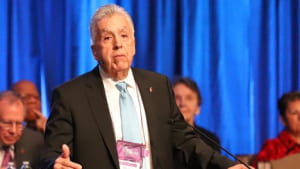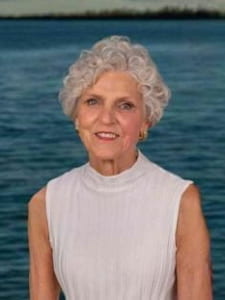Kathy Roberts co-chairs the food pantry at her church, Pulaski Heights United Methodist Church in Little Rock, Arkansas. When she learned that “Food and Faith” was the theme of this year’s Fall Convocation at Perkins, she saw an opportunity to think more deeply about her church’s ministry with food.
Roberts was one of 80 people from six states who gathered on the SMU campus November 14-15 for the annual Fall Convocation. The program featured authors and speakers who work at the intersection of spirituality, faith and food.
The event kicked off on Monday evening, Nov. 14, with a food-themed exhibit and reception at Bridwell Library, followed by an opening lecture by Aarti Sequeira, a chef, author, producer and Food Network personality.
“Breaking bread has a way of breaking down barriers,” Sequeira said. “God communicates to us over and over again through food. We cannot go without food, and we cannot go with Him either.”
Sequeira shared that cooking saved her life. After finishing her education in journalism, she moved to Los Angeles, but couldn’t find a job.
“My parents had saved their entire lives to put me through school, and here I was on my butt watching soap operas,” she said. “I felt useless. But every day I found a recipe and I would make it. It gave me a sense of peace and a sense of purpose. Cooking is precious to me on multiple levels.”
Sequeira wants Americans to rediscover the joy of food preparation and of savoring, rather than rushing through, shared meals.
“A nasty virus has swept through our kitchens,” she said. “Dinner must be made in 30 minutes and consumed in even less time. At the same time, we feel more disconnected from ourselves, our loved ones and even God. Cooking makes the mundane holy. It consecrates.”
Sequeira began praying as she cooked and began to cultivate the spiritual side of cooking. That ultimately led to her creation of a journal, My Family Recipe Journal: With Prayers & Scriptures (DaySpring, November 27, 2021.)
“Jesus cooked,” she said. “In his resurrected body, he made his disciples breakfast. He came down, stoked the coals, scaled the fish. His friends’ hearts were broken at that point. The first thing he did was he cooked for them.
Sequeira’s talk concluded with a Q&A with Pastor Ray Jordan (M.T.S. ’08).
“Food healed my heart,” she said. “There is something so intimate about cooking and food and feeding someone. It is powerful when we cook for people. It is such a privilege to cook. It is a magical portal to touch the sacred.”
Sequeira’s presentation was a highlight for Roberts.
“The essence of her message was seeking the sacred in the kitchen,” she said. “Her words, ‘Food is god’s love made nutritious and delicious,’ really put what we do at the food pantry in perspective.”
Breaking Bread, Breaking Borders
Tuesday’s program began with opening worship and another session led by Sequeira, followed by a book signing.
 Lunch on Tuesday was provided by Break Bread, Break Borders (BBBB), a social enterprise empowering refugee women. Before the meal, attendees heard from a panel of four women who participate in the program, led by founder Jin-Ya Huang.
Lunch on Tuesday was provided by Break Bread, Break Borders (BBBB), a social enterprise empowering refugee women. Before the meal, attendees heard from a panel of four women who participate in the program, led by founder Jin-Ya Huang.
Huang shared how her own family escaped from Communist China to Taiwan. Once in the U.S., they pinched pennies for years to buy a Chinese restaurant franchise.
“My mother hired other immigrants and refugees, trained them, and then sent them on to other opportunities,” she said. “That’s what we do today with BBBB. It’s been super tough but also an incredible and rewarding journey.”
Sharing stories and deep conversations is also a key element of the BBBB program. Each of the women in the panel shared her story.
Claude, one of the panelists, was a teacher in Syria before emigrating to the U.S. by way of Jordan. She talked about trying to keep the kids in her care safe and calm while battles raged nearby.
“I decided I didn’t want my kids to go through all this,” she said. With help from a sister in Jordan, she escaped to Jordan, stayed there for 5 years, then came to the U.S. Recently, Claude became a citizen.
“I had a lot of fear when we were coming here,” she said. “We heard the people would not like us. I also thought I would see some cowboys and horses!”
Claude’s daughter Manar is now a student at the University of Texas at Dallas. She’s majoring in psychology because she hopes to help people in the future.
“It’s so hard for kids who come here,” Manar said. “The parents’ first priority is physical health, but kids are not happy just because they’re in a safe place physically. I want to help in that situation.”
Food has been a source of connection in a strange land, she added.
“When you feel lost and you don’t feel like you belong anywhere … eating the food makes me feel I’m regaining the connection I lost,” Manar said. Syrian cuisine for her, she said, “is the taste of family,”
Shahla, who came here from Afghanistan, talked about cooking welcome meals for Afghani refugees who arrived in the resettlement center in Dallas.
“Having the food from home often brings up tears,” she said.
The panel discussion was a highlight of the Convocation for the Rev. Alex Joyner (M.Div. ’91), an attendee who traveled from Charlottesville, Va.
“The interplay of personal and national stories, with a shared meal following, made for a powerful experience,” he said.
Lunch was a cross-cultural, buffet-style feast prepared by the women of BBBB, and included Middle Eastern favorites like baba ghanoush, hummus and an assortment of sweets.
“We tend to have preconceived ideas, but when we hear someone’s story and break bread with them, it changes everything,” Roberts said. “That was an important message for me to hear personally.
Tuesday Workshops
On Tuesday afternoon, attendees selected from a slate of workshops, including one led by organizers of Project Unity’s Together We Dine program, founded by Perkins Executive Board Member and SMU alum Pastor Ritchie Butler.
“I appreciated being able to talk about race openly and to do it while having fun,” said attendee Maurica Dooley, a lay member of First United Methodist Church in Forest City, Ark. “I’m part of a similar interracial, interdenominational group here in Arkansas. That workshop is going to help me to bring fresh ideas to our group.”
Another workshop, called The Pickling Parson, was led by the Rev. Stan Copeland, pastor of Lovers Lane United Methodist Church in Dallas, who wrote a book by the same name.
“I appreciated Stan’s joining together of family history, theology, and ministry,” said Joyner. “It made for an inspiring model of putting your whole self into ministry.”
 The Rev. Michelle Morris (M.Div. ’09, Ph.D. ’14) led a workshop on “Filming and Food.” Morris is pastor of First United Methodist Church of Bentonville, Ark. Along with parishioner Diane Morrison, she started a cooking show on YouTube called “Food and Faith with Diane.”
The Rev. Michelle Morris (M.Div. ’09, Ph.D. ’14) led a workshop on “Filming and Food.” Morris is pastor of First United Methodist Church of Bentonville, Ark. Along with parishioner Diane Morrison, she started a cooking show on YouTube called “Food and Faith with Diane.”
Morrison demonstrated how to prepare a charcuterie board and shared tips for inclusive hospitality, while Morris offered tips on the technical side of taping and editing a cooking program.
Spirituality and Eating
The Tuesday afternoon session on Spirituality and Eating was led by Norman Wirzba, a Duke University professor who writes about food and theology. He noted that many cultures and faith traditions offer grace or some sort of meditation before meals.
“What are we doing when we are eating?” he said. “It is a very important thing to think about. If you don’t eat, you die.”
Wirzba noted that this is the first generation in the history of the world in which people did not need to think of fishing or foraging or growing their own food.
“We need to recognize how new this situation is,” he said. “We have trained ourselves to think about food as a commodity … measured by metrics of convenience and price.”
Wirzba described the ways food plays a key role in the Christian faith. Christians have a meal at the heart of their liturgical practice. Jesus said, “I am the bread of life.”
“Food is about bodies,” he said. “There’s no room here for dualistic faith or gnostic faith. Jesus shows us that bodies are important, which is why he is constantly among them, touching them.
Wirzba urged attendees to reflect gratefully and thoughtfully on where our food comes from.
“Food isn’t just stuff,” he said. “It isn’t just fuel. It’s the love of God at work. Which is why God is so upset when there are hungry people in the world and when the world is abused.”
Repeat Attenders
This year’s Fall Convocation drew attendees from six different states: Arkansas, New York, Oklahoma, Tennessee, Virginia and Texas. Funding for the event came in part from the Paul Elliott and Mildred Fryar Martin Lectureship in Practical Theology, the Jackson Lectureship in Bible, the Claudia and Taylor Robinson Lectureship and the W.W. Fondren Lectureship. Fifteen attendees traveled from the Arkansas Conference to attend, thanks to funding from The Methodist Foundation for Arkansas, which covers tuition. (The Foundation also supports attendees to other Perkins external programs, including the Perkins School of Youth Ministry, the Perkins Summit for Faith and Learning, and Perkins’ Certificate for Spiritual Direction program.)

“I’ve thoroughly enjoyed the program every year,” said Dooley. “It’s an awesome, inspiring event to go and learn new things. It’s just so uplifting and you meet the nicest people.”
Joyner has been attending Fall Convocations since graduating from Perkins in 1991. A former instructor in Perkins’ Course of Study School (COSS) from 1996 to 2015, he’s currently serving two UMC congregations (First UMC and Hinton Ave. UMC) that together are known as the Charlottesville City Cooperative Parish.
“Perkins was such a formative experience for me that I have made it a point to come back as often as I could,” he said. “The opportunity to learn from top-notch presenters and to reconnect with the school are important to me.”
Bart Patton, Director of the Office of External Programs, which hosted the event, said that this year’s theme seemed to resonate with many attendees.
“The experience of sharing food together is a sacred one, and it’s a central part of communities of faith,” he said. “We were thrilled to offer this type of immersive transformational experience to our community of lifelong learners. It really doesn’t get more practical—or more theological—than examining something so fundamental as our eating.”
For Kathy Roberts, the two-day event delivered the inspiration and insights she’d hoped for.
“I felt so full and energized,” she said. “I smiled for two days.”








